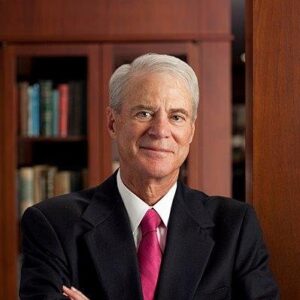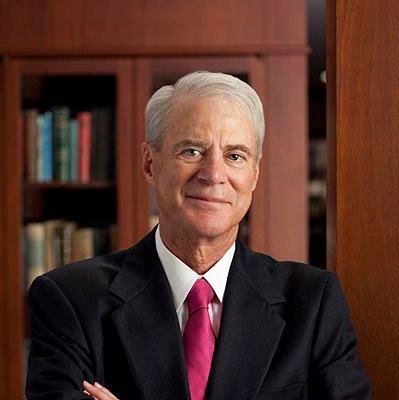 As I noted in my previous blog, I had wide-ranging discussions with J.P. Bryan over more than four hours in Marathon, Texas. These are just a few highlights; I will reserve more for the book. J.P.’s personal history, knowledge of the history of this part of America, and ability to place those into the context of our current times was a powerful milepost along Wisdom Road.
As I noted in my previous blog, I had wide-ranging discussions with J.P. Bryan over more than four hours in Marathon, Texas. These are just a few highlights; I will reserve more for the book. J.P.’s personal history, knowledge of the history of this part of America, and ability to place those into the context of our current times was a powerful milepost along Wisdom Road.
“I grew up in the little town of Freeport on the coast of Texas, about 60 miles south of Houston. I was born in 1940, I believe the best time a person could be born in America. Dow Chemical had moved there just before the outbreak of the war in 1938 . My dad worked for them. He was a lawyer, historian and started a number of businesses that could have been a lot more successful if he didn’t have a full time job. He started the local bank in a little town called Lake Jackson.”
“Steven F. Austin’s sister, Emily, was my great, great, great grandmother. She was married to a Bryan and they had three boys and brought them to live in Texas. They came in 1830 and settled in the community around Freeport; they there were cotton farmers . The Bryan boys were all in the Texas Revolution. The youngest one wasn’t old enough to fight but he was carrying messages from the Alamo to the settlers on the coastal part of Texas, and two older brothers both served in the Army under Sam Houston. Moses Bryan was at the Battle of San Jacinto.”
“There is something very important that happened, not just with people in Texas, but people in the western part of America, who were the first arrivals after, of course, the Native Americans. For hundreds of years, let’s call it the Western migration from Europe, to the east coast of what became the United States, to the 98th parallel. All these individuals were transitioning from forested country when they came to the 98th parallel, and for the first time in their lives, they saw this vast open prairie. I think that was transformative. I think people immediately began to recognize something very different, not just in the land, but in themselves. I think they saw opportunity as not confined, like it was in a forested country, but as unlimited. The Bill of Rights, the Constitution and the Declaration of Independence, all of them talk about human freedom. James Madison said it best: ‘Gentlemen, these documents will travel’. And I think in the settlement of the West the environment encouraged that idea. ‘Look, nothing’s inhibiting me, I am free now, I can see it, I can see it right in front of me. I can see unlimited space. And so maybe I’ll also see unlimited opportunity.’ They didn’t say those words, sure. But they acted it out, because that’s the opportunity that was available.”
“The Spanish left an incredible mark on this land. Most of the mountains, and rivers and so forth, have Spanish names. Our legal systems, especially as it applies to land and water rights, are all determined under Spanish code. Adoption and community property rights, a woman owning her own property, are Spanish legal concepts that were not part of the English common law. “
“I grew up in a very much segregated world. When we had a family reunion, all the blacks who had been formerly slaves for the most part, would come and set all their tables up and a little away from us. But by about halfway through the event, all the kids would all be playing together, and then all the adults would mix as well. I was always fascinated, and I think the other young kids too, with the black kids. They were different from us and they were a lot of fun to play with. There were good reasons for segregation, back when I was growing up. I didn’t know exactly what they were, I couldn’t identify it exactly. But I thought, well, you know, maybe the blacks all like to be together more anyway. I didn’t really get into it intellectually until I got to college, first year in college, got to hear Martin Luther King speak. I came away firmly convinced that segregation was totally wrong. He was speaking the truth, and I heard what he had to say. So this is all I care about, I just want people to be able to seek the truth.”
“For all of us that lived in that time, everybody thought there was a Creator. I never heard a kid that I grew up with, even until they were adults, who didn’t believe that there was a God somewhere in their lives. Believing in a larger or greater authority figure, when your parent says something to you it wasn’t like, ‘because I told you so’; this is God saying that that’s not good for your life.”
“Freedom was given to us, not something we manufactured. It came directly from God. When we abandon the idea of a Creator, we abandon any authority figure in our lives; we can make our own law. And then whoever the rule maker is has got the most power. That’s what we’re losing. That’s why young men are going out and killing people. Never happened when I was growing up, we carried our guns around hanging in the truck behind us. I am shocked by how quickly it’s happening. We’ve lost respect for women. We’ve lost respect for the law and law enforcement. We’ve lost respect for husband and wife, a marriage, the family. Family is a foundational piece of America, of any country. If you don’t have a family any longer, how can you raise the children and give them the proper guidance for their moral conduct and their treatment of other people? We have no sense of forgiveness.”
“The heroes in our textbooks, in our history, were Anglos. Did we ignore other deserving individuals? Absolutely. I give credit to the liberal community for bringing out of the shadows those unknown, those invisible heroes, because of their sacrifice, which in many cases was greater than the people we have learned more about. They had more to overcome. But in telling their story, you don’t need to destroy the other people’s stories. There’s an element now in the history departments that don’t love America. They want to destroy our heroes. They spend their time figuring out some way they can find the soft underbelly of whoever may be considered a hero. And when we start to destroy our heroic figures, we’re going to destroy our nation.”
“We have become tribal, I guess is the word. I’m definitely a conservative. I’m not an environmentalist. I’m a conservationist. But there are a lot of things that my liberal friends were right about, that I found out later on, just because, I thought, ‘Well, I’m gonna listen to what they’ve got to say.’ I believe in freedom. I want to be able to say ‘I think you being a homosexual, or being an adulterer, you’re sinning.’ I’ve got plenty of friends that are adulterers and homosexuals. I don’t hate them for it. I just don’t believe that’s the right thing to do. But I don’t hate you for it.”
“Both sides at the extremes dominate. Truth can’t find a place anymore. I want our schools to teach kids how to think, how to look at a problem and propose solutions. Give kids a set of facts, not opinions, and teach them the skills to form their own opinions. People on both sides of the political spectrum are creating their own truths and that is just wrong. You can’t manufacture truth to fit your ideas.”












Leave A Comment